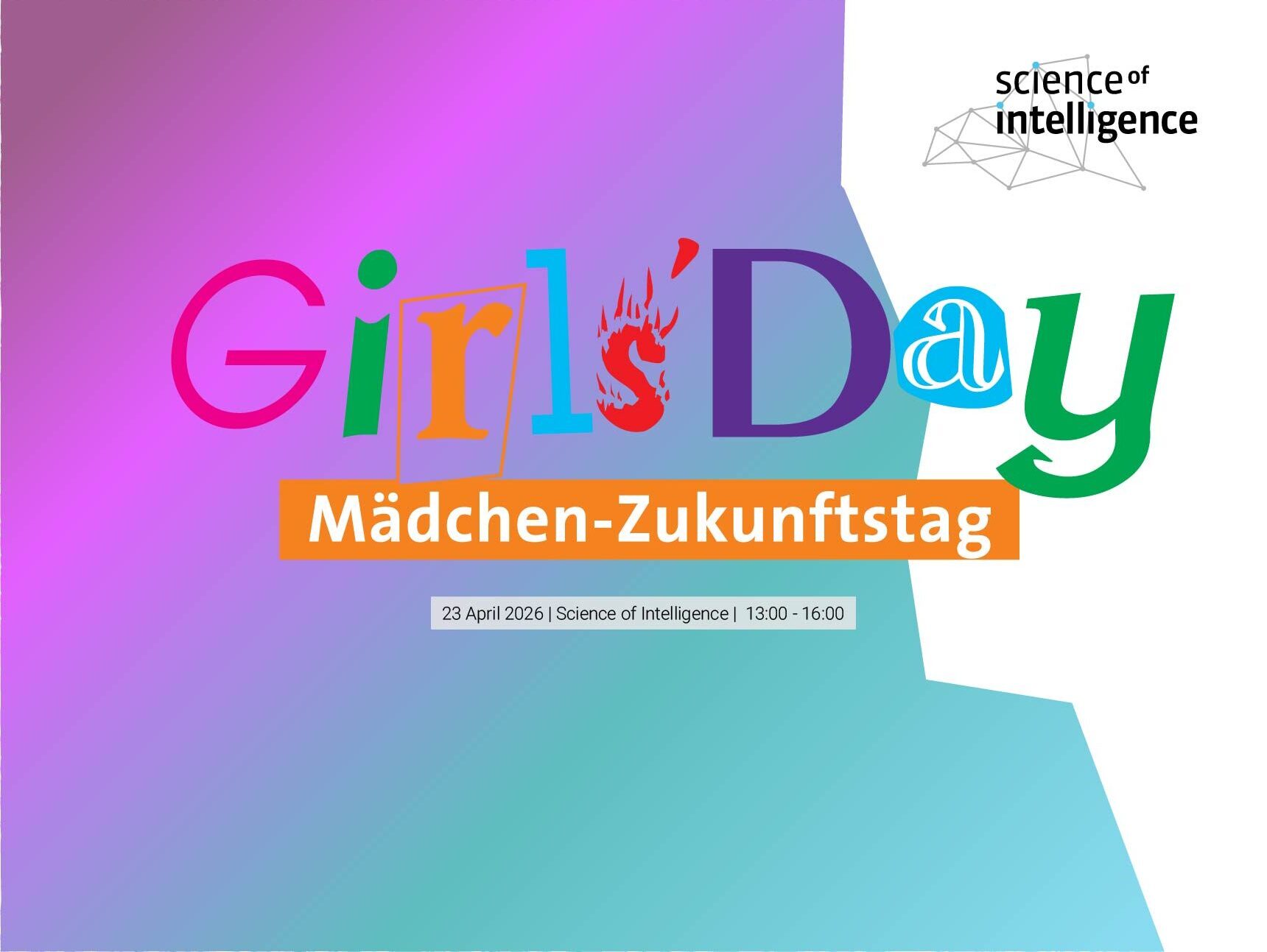
Girls’ Day
What is intelligence, and how can research help improve current technologies with new insights? At Girls’ Day with the Cluster of Excellence Science of Intelligence, you’ll discover how scientists from many different disciplines explore the topic of intelligence. You’ll paint pictures with your eyes, chat with a robot, learn how to teach robots new skills,




